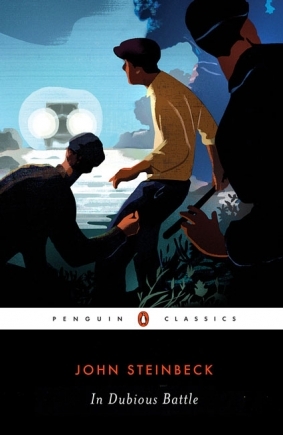 What's your favorite work of resistance literature? That's the question that launches this year's NBCC Reads series, which draws upon the bookish passions of NBCC members and honorees at this time of cultural shift. (NBCC Reads from previous years here.) We're posting these in advance of the #WritersResist events to be held on January 15–Martin Luther King Jr.'s birthday– throughout the country, including an event on the steps of the New York Public Library. Andrew Solomon, president of NBCC Sandrof-award winning PEN American Center and Trustee Masha Gessen will host; American Poets Laureate Robert Pinsky and Rita Dove will share original “inaugural” poems written for the occasion; and dozens of writers and artists including Laurie Anderson, Mary Karr, A.M. Homes, Michael Cunningham, Jeffrey Eugenides, and others will speak and read on the ideals of democracy.
What's your favorite work of resistance literature? That's the question that launches this year's NBCC Reads series, which draws upon the bookish passions of NBCC members and honorees at this time of cultural shift. (NBCC Reads from previous years here.) We're posting these in advance of the #WritersResist events to be held on January 15–Martin Luther King Jr.'s birthday– throughout the country, including an event on the steps of the New York Public Library. Andrew Solomon, president of NBCC Sandrof-award winning PEN American Center and Trustee Masha Gessen will host; American Poets Laureate Robert Pinsky and Rita Dove will share original “inaugural” poems written for the occasion; and dozens of writers and artists including Laurie Anderson, Mary Karr, A.M. Homes, Michael Cunningham, Jeffrey Eugenides, and others will speak and read on the ideals of democracy.
I first read Steinbeck’s In Dubious Battle, published in 1936, in high school, and it has stayed with me. An account of a strike by migrant apple workers in fictional “Torgas County,” standing in for a real-life labor dispute in Tulare County, it captures the disillusioned mood of Depression-era America. The infatuation with the Communist Party as a tool to mobilize those left out is portrayed here clinically, and, Steinbeck’s protestations to the contrary, sympathetically. Strike leader Mac McLeod and his young disciple, Jim Nolan, are clear-eyed about the consequences of their actions, but argue that the ends justify the means.
“Listen…we’re probably going to lose this strike,’’ Mac tells a local picker he’s recruited to the cause. “But we maybe raised enough hell so maybe there won’t be a strike in the cotton… It doesn’t make any difference if we lose. Here’s nearly a thousand men who’ve learned how to strike…”
It’s a quietly furious novel, less magniloquent than The Grapes of Wrath,’ but more effective, for my money. Steinbeck’s loner stance puts him at a distance from the agit-prop work of the day, from Dos Passos to broadly drawn Popular Front fiction.
A sympathetic medic, Doc Burton, supplies counterpoint to the revolutionary mood, arguing that “violence begets violence… It seems to me that man has engaged in a blind and fearful struggle out of a past he can’t remember into a future he can’t foresee nor understand.’’
We may not see the future lying before us, but Steinbeck has provided a valuable roadmap to the lessons of the past. He may have fought kicking and screaming against the label of “engaged’’ writer – he’ll never be confused with Sartre, to his credit – but he understood the power, as well as the perils, of resistance.
Paul Wilner is a frequent contributor to the San Francisco Chronicle, Zyzzyva, and other publications.

